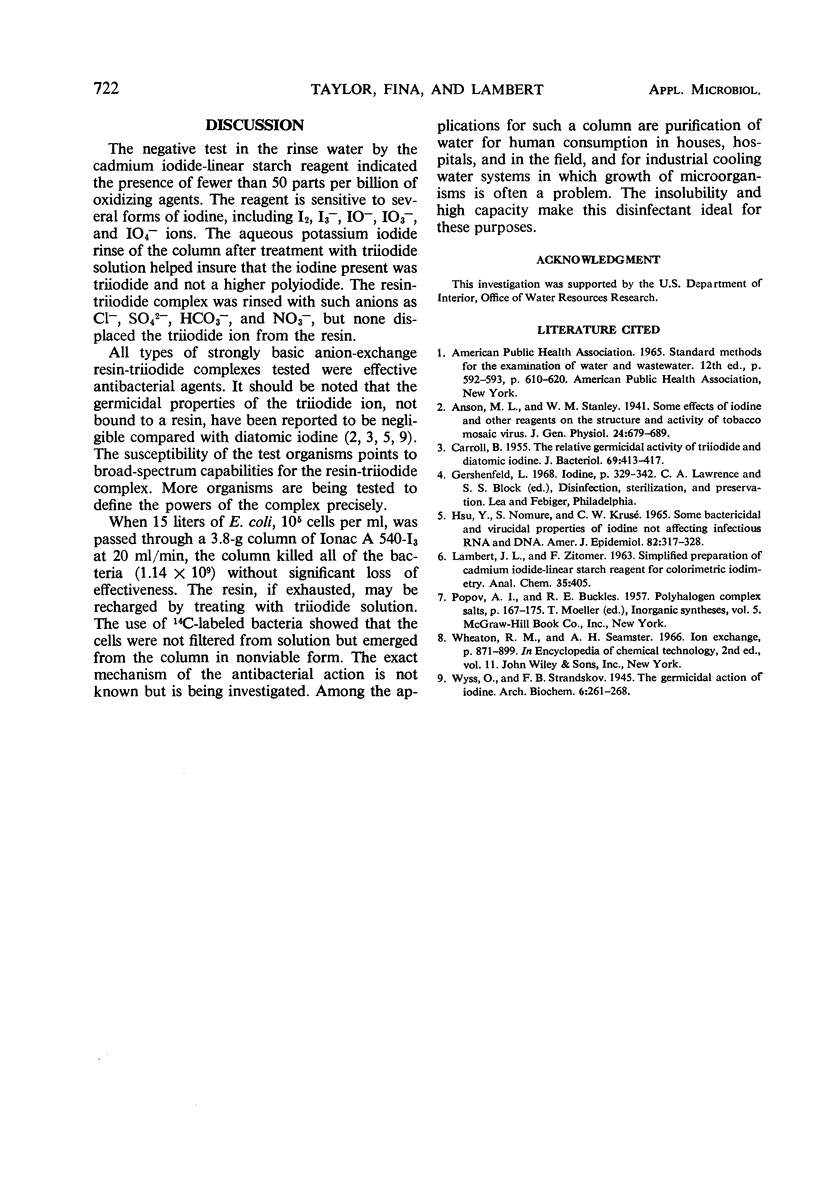Abstract
Strongly basic anion-exchange resins form stable, water-insoluble combinations with triiodide ions. The combinations have remarkable antibacterial properties: 3.0 × 105Escherichia coli cells per ml were killed when passed through a 3.8-g column of commercially available resin treated with triiodide (volume 4 ml after treatment). In an attempt to deplete the resin-triiodide complex, 1.14 × 109E. coli cells in 15 liters were passed through the column with no significant loss of effectiveness. The antibacterial capabilities of the resin-triiodide columns ranged from 106Salmonella typhimurium per ml to 1.1 × 104Streptococcus faecalis per ml. Staphylococcus aureus and Pseudomonas aeruginosa were also tested and killed at concentrations of 1.8 × 104 and 1.3 × 105 per ml, respectively. The cells were not filtered from the water. They emerged from the column in nonviable form. This was demonstrated by using 14C-labeled bacteria. The irreversible nature of the antibacterial action was revealed when attempts to wash the damaged cells did not restore viability.
Full text
PDF


Selected References
These references are in PubMed. This may not be the complete list of references from this article.
- CARROLL B. The relative germicidal activity of tri-iodide and diatomic iodine. J Bacteriol. 1955 Apr;69(4):413–417. doi: 10.1128/jb.69.4.413-417.1955. [DOI] [PMC free article] [PubMed] [Google Scholar]
- Hsu Y. C., Nomura S., Krusé C. W. Some bactericidal and virucidal properties of iodine not affecting infectious RNA and DNA. Am J Epidemiol. 1965 Nov;82(3):317–328. doi: 10.1093/oxfordjournals.aje.a120552. [DOI] [PubMed] [Google Scholar]



